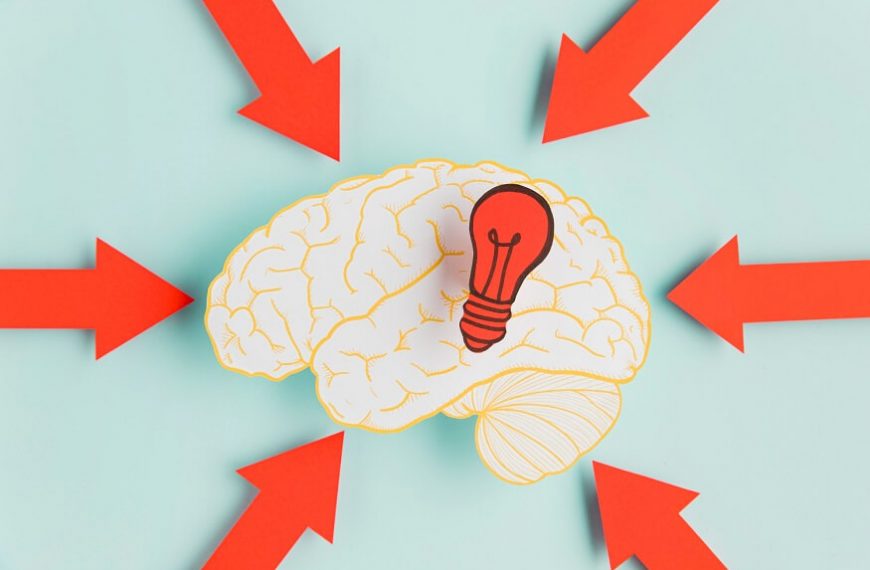The human brain has a massive amount of potential, it is a complex organ that controls its various body functions and is also responsible for our behaviours, feelings and emotions. The vast dynamics and the potential of the human brain cannot be fully explained in a short span of time, but we can definitely learn some important facts about the human brain.
Being aware of some of the facts about the brain gives us the ability to understand ourselves more- why we behave in certain ways, our reactions to different situations and so on. This information will help us to manage our behaviour more effectively and will also enable us to teach our children to manage their behaviour, feelings and emotions.
Imagine a scenario where your child who has just begun to walk or climb has gotten on top of the sofa and triumphantly plants themselves down, way too close to the edge that they start to fall off, but you dash to their aid just in time to prevent them from being harmed. Did you know, you were able to do this because of your sympathetic nervous system and amygdala.
Like the scenario mentioned above, as parents and individuals you will be faced with numerous instances where you were able to act or react at the right time and protect yourself or your little one because of the fantastic abilities of the brain.
Let us examine a few important facts about our brain and its impact on our parenting and on our children.
- Amygdala :
- Prefrontal Cortex:
- Autonomic nervous system:
- Neuroplasticity:
- Mirror Neurons:
The amygdala also referred to as the alarm centre of the brain is the primitive part of the brain responsible for helping us sense danger and to react immediately in dire situations. The amygdala is also functioning when we experience emotions like anger, anxiety and stress. When the amygdala springs into action, the body receives a rush of adrenaline which enables us to react quickly when we sense danger.
We need to know that, while this quality is essential most of the time, there are situations where we don’t need to immediately jump into action or react to a situation, the amygdala cannot distinguish between the two for e.g., when you child falls down while running, it is not necessary for us to immediately jump up and rush to our child, we can wait for the child to get up and compose themselves, or if our child is screaming and throwing a tantrum, we need to stay calm and figure out why, maybe our child is simply hungry, tired or feeling unwell shouting at our child will not help the situation.
This section of the brain takes the longest to develop, gradually reaching maturity around 25yrs of age. Our thinking, planning, and decision making abilities are taken care of by the prefrontal cortex. Gradually as the prefrontal cortex matures through the years, there will be noticeable changes in the way our children behave as they grow up. You will notice them making the right choice and putting into practise what they have learnt. For e.g. instead of grabbing a toy they will ask for it, instead of crying and shouting they will try to communicate their needs to you.
The prefrontal cortex balances out the amygdala, so with time and experience instead of reacting to a situation the prefrontal cortex enables us to analyse and act accordingly. Children reacting to a situation is normal, because their prefrontal cortex has not yet fully developed. As adults we need to control our amygdala and use our prefrontal cortex to help our children deal with their emotions.
The autonomic nervous system comprises two sections: the Sympathetic nervous system (fight or flight response) and the parasympathetic nervous system (rest and digest response). Simply put, these are two sides of the same coin, while one increases our heart rate, dilates our pupils and stops our digestion in preparation to suitably tackle the threat at hand, while the other calms and relaxes the body, helps it resume normal breathing patterns and starts digestion again.
We need to acknowledge the fact that our body is not meant to be in a constant state of alertness or stress. The body needs to be calm and relaxed to stay healthy and function in an optimum manner. Hence, it becomes necessary for us to help our children to calm down after being agitated or after a stressful episode, by practising different relaxation techniques.
The brain has neuroplasticity which is the ability to learn new things through practice, the more we repeat an action the better we get. The brain creates pathways when we do things over and over again, with more we practise, more pathways are formed which helps in memory. Which is why we hear people saying ‘the more you practise, the better you get’. Over time the brain learns this action and will therefore not need to put in much effort to complete a task. This is because of well used pathways that have been created in our brains. For example learning how to write, how to swim, ride a bike and so on.
The advantage of knowing this amazing fact about the brain is that practice is the key to get our children to learn something new, the method used is the same whether it is learning a musical instrument or becoming proficient in maths so also if you want your child to adopt a particular behaviour like calming themselves down after experiencing a big emotion.
There are Mirror neurons present in our brains, these special neurons enable us to copy the emotion we see in front of us, which explains why we automatically smile at someone who smiles at us even though we do not know who they are or, we also burst into laughter when we see someone laughing uncontrollably even though we don’t know the reason for the laughter.
Mirror neurons in our brains teach us about empathy. This brain fact enables us to empathise with our children as we can feel and identify their feelings even if our child is not able to, and as adults we can find a suitable way to help them out. We can identify that our child is experiencing a big emotion that is upset or angry and we can help them find a suitable outlet to calm back down.
Learning about the brain and how it functions differently at different ages makes us more effective parents as we now know that our child’s brain has a long way to go till the prefrontal cortex is fully developed and able to balance out the reactions brought on by the amygdala. The autonomous nervous system has its own way of keeping us alert and calm, we learn and remember things because of the neuroplasticity of our brain and we can empathise because of the mirror neurons.
The staff and teachers at Eurokids are given regular workshops and training on early childhood education and are also taught some important facts about the human brain. They are well aware of how children’s brains develop. With tremendous care and patience they mould the children and teach them acceptable forms of behaviour which in turn will make them productive members of society. Click here to find a centre near you and enrol your child in a school that values the uniqueness in child holistic development.
















